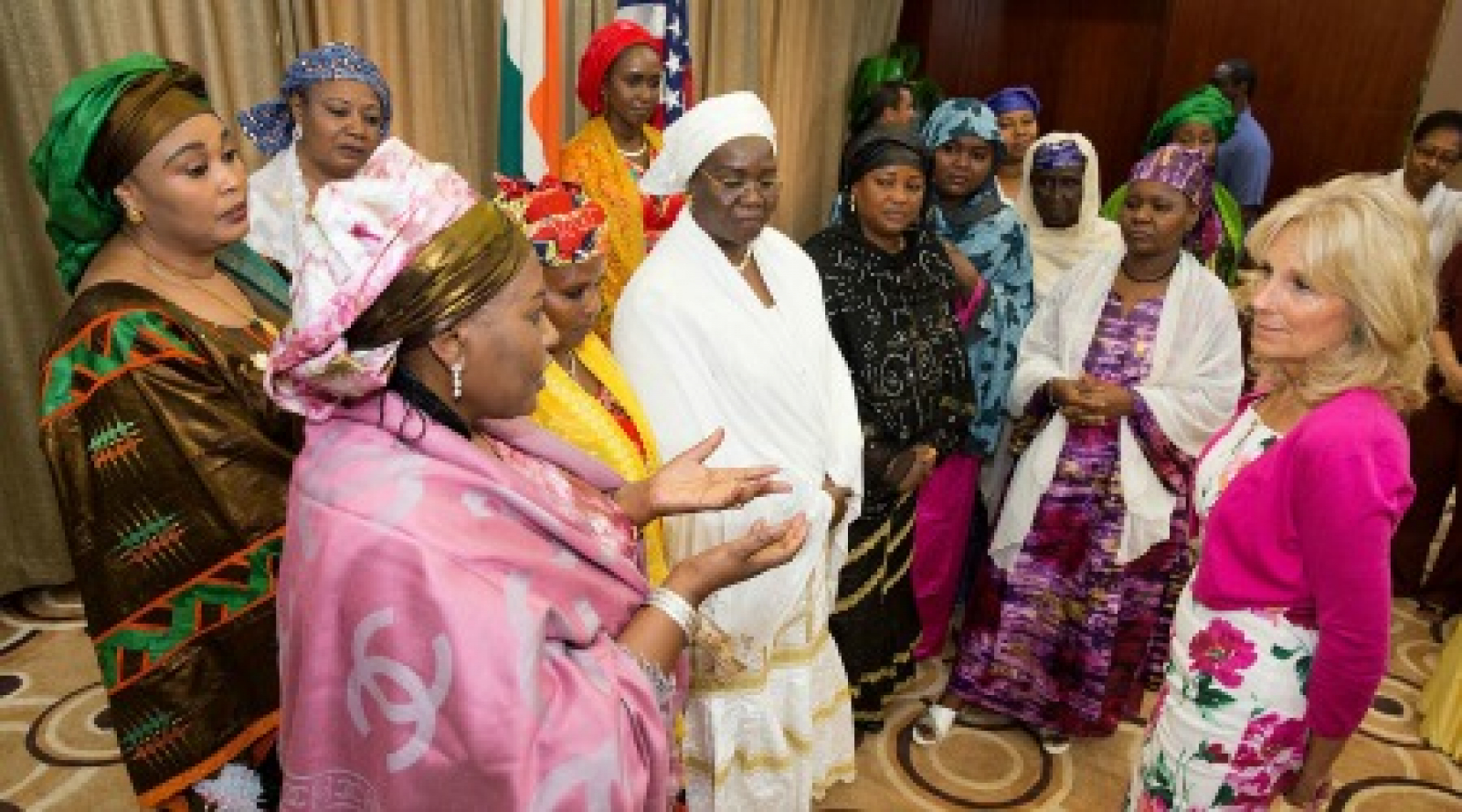
SHARE
ISSUES
On July 22, at the request of the U.S. Embassy in Niamey, NDI facilitated a meeting between 12 female members of Niger’s National Assembly and a high-level US delegation headed by Dr. Jill Biden. The delegation also included Cathy Russell, U.S. ambassador-at-large for global women’s issues; Shannon Smith, deputy assistant secretary at the State Department’s Bureau of African Affairs; Eric Doucette, special advisor to the Vice President, and Susan Markham, senior coordinator for gender equality and women’s empowerment at USAID. Markham is also NDI’s former director for women’s political participation.
Niger was the delegation’s last stop on a three-country visit to Africa, which focused on promoting women’s rights and education, a long-time interest of Dr. Biden’s. While in Niger, Dr. Biden met with a number of political leaders, including President Mahamadou Issoufou, along with youth and civil society groups and Nigerien entrepreneurs. The delegation was accompanied by H.E. Eunice Reddick, U.S. ambassador to Niger.
NDI Deputy Resident Director Latifa Mai Moussa moderated a discussion on women’s engagement in politics in Niger and oversaw presentations, which included the MPs’ legislative priorities in the National Assembly.
Ali Mariama El Hadj Ibrahim, of the Nigerien Party for Democracy and Socialism (Parti Nigerien pour la Democratie et le Socialisme-Tarraya - PNDS-Tarraya) - the ruling party - and president of the Parliamentary Network of Women MPs in Niger, discussed efforts to push for the adoption of a bill to strengthen girls’ right to education.The legislation would protect the right of girls under the age of 18 to attend school is controversial in Niger. While the government initially proposed the bill, following strong political pressure from conservative religious groups, it retracted the proposal with a promise to revise it before its introduction to the Assembly. The draft has since been stalled in the Ministry for the Population, Promotion of Women, and the Protection of Children. The female Nigerien MPs plan to push for a reintroduction of the draft bill while simultaneously undertaking a participatory campaign to gain support for the revised law from community and religious leaders. Despite increasing in recent years, girls’ enrollment in school remains below that of boys (56.9 percent net enrollment for girls in primary school in 2014 compared to 66.4 percent for boys).
Under its USAID-funded program, hich focuses on legislative strengthening in extractive industries, human rights, and the protection of women and girls, NDI has worked with women’s groups and MPs. With our local partners, we have built consensus among political and cultural stakeholders on the importance of girls’ education through parliamentary information days and workshops with civil society organizations. In June, NDI organized an orientation and training session for the 28 newly elected women MPs. The session included topics such as developing networks and coalitions, working with the media, preparing and leading meetings, and overcoming the difficulties and obstacles faced by women MPs.

The second presentation, by MP Adiza Seini from the opposition party Moden FA Lumana, focused on women’s representation in decision-making positions and the gender quota law. The new National Assembly, elected in February 2016, includes 28 women out of 171 total MPs. In 2015, the Assembly passed a law to raise the gender quota for women’s inclusion on party candidate lists from 10 to 15 percent; however, many parties have struggled to meet this quota. NDI has worked with political parties to promote the participation and leadership of women within parties by helping parties recruit, retain and promote women and to improve women’s placement on party lists. The 28 current women MPs hope to increase the gender quota during the current legislative term by working with civil society and male allies.
After the presentations, the women MPs engaged in a discussion on women and youth engagement in politics in Niger with Dr. Biden and Ambassadors Reddick and Russell. Ambassador Reddick renewed her commitment to working with the Assembly and expressed her hope to establish a partnership between the women MPs and Ambassador Russell’s office, which works to promote women’s advancement around the world.


